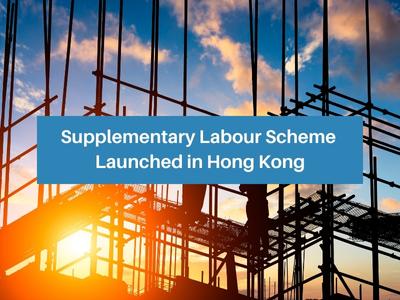Hong Kong’s Supplementary Labour Scheme Gets Enhancements

The government’s Chief Executive says that many sectors in Hong Kong are experiencing labour shortages. Also, the relevant bureaus are all ears about their concerns and propose custom solutions to respective industries.
In addition to the particular programme the Labor & Welfare Bureau will introduce in June to import carers for residential care facilities, the Development Bureau and the Transport & Logistics Bureau will implement sector-specific labour importation programmes.
Supplementary Labour Scheme
Under the supplementary labour scheme, businesses may apply to import workers at the technician level or below. However, the goal should still be to safeguard local workers’ employment opportunities, salaries, and benefits. Thus, employers must prioritise filling available job vacancies with local workers and actively train them.
Upon application for importing labour, businesses need to go through a local recruitment drive to ensure the locals are up for the vacancies. Employers hiring imported labour must pay them the median wage, offer a proper employment contract and work only the jobs stipulated in the contract.
Employers of imported labour can arrange for their workers’ accommodation in Hong Kong, the Mainland, or the imported labour themselves can reside in their residential premises on the Mainland.
Transport and Construction Sector
Employers in the construction and transportation sectors should be able to apply for labour import quotas under sector-specific labour importation schemes. Currently, the government allows up to 20,000 manpower imports, where 12,000 is for construction and 8,000 is for the transport sector. Of the 8000, the aviation industry requires 6300; the rest will be for the public bus/coach trade. The allowed ratio meets the essential requirement of the supplementary labour scheme, which is one imported labour to two full-time local workers.
In addition to introducing sector-specific labour importation schemes, the government plans to expand the scheme’s coverage and operation. It will suspend the scheme’s general exclusion of the 26 job categories and unskilled/low-skilled positions for two years.
Upon the expiry of the imported labour contract, employers must submit a new application should they still require imported labour to get the job done. With the enhancements, the Hong Kong government will rename the Enhanced Supplementary Labour Scheme (ESLS) while retaining other requirements.
In July, the government plans to launch sector-specific labour importation schemes for the construction and transportation industries. Six months post-launch, the government will review the schemes’ implementation.
Guiding Businesses With Needful Advice
While it allows labour importation, the Hong Kong government reaffirms that local workers’ job opportunities remain their top priority. Hence, the government will continue to employ multifaceted strategies to address the labour shortage, such as training and retraining, providing appropriate employment support, and driving technology adoption for productivity growth.
At 3E Accounting, we offer all hands on deck for businesses needing to hire import labour in their workforce, and we will ensure your business will comply with the necessary regulations set by the Hong Kong government.








